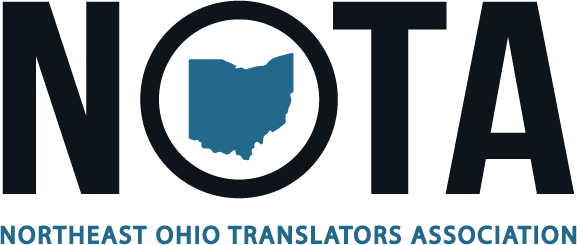By Jill Sommer
Jill R. Sommer is a full-time freelance German>English translator. She holds a BA in German and a BA Russian from Bowling Green State University and an MA in German Translation from Kent State University. She lived and worked as a freelance translator in Germany for six years. After moving back to the U.S. in 2001, she continued freelancing and specializes in medical translation. She has attended the ATA conference and presented regularly there since 2002. She served on the Ethics Committee in 2012 and then again from 10/2016 to the present, serving from 10/2018-10/2021 as Chair. Over the last two years of her tenure as Chair she oversaw the rewriting of the Ethics Code and Procedures, which will be unveiled this October at the annual conference.
One of the first questions that you may find yourself asking upon entering the translation field is whether or not you need to get certified; and the answer really depends. For example, I have been working in the industry for 25 years and am not certified. While it is true that some agencies in the United States only hire ATA-certified translators, most are more concerned with education, relevant experience and translation history.
It has come to NOTA’s attention that some of its members may not understand what certification truly is. Certified translators have had their abilities, knowledge and skills evaluated and deemed satisfactory by an appropriate institution or accreditation/certification body. There are not a lot of options for certification for professional translators in the United States, and there is no such thing as international certification. In addition, if you wish to pursue interpretation along with translation, you may also be required to obtain a state certification focusing on interpretation, though certification in interpretation does not necessarily certify you as a translator.
It is important to note that a number of private companies claim to be "associations" or "institutions" providing translation certification. These claims are often false and such "certifications" may not benefit you in the long run. Be sure to research the certifying credentials of any program and their acceptability in the professional translation world.
The American Translators Association is the leading certifying body in the United States and the only one through which you can become “ATA-certified.” NOTA hosts an ATA certification exam every year in May. The exam is difficult and has a roughly 20% pass rate. Candidates are advised to have already obtained some kind of higher education or specialized knowledge and have a few years of experience in the translation field before attempting the exam. The exam itself tests advanced comprehension of the text, translation methods, and proper target-language grammar--including punctuation, capitalization, spelling, and usage. Candidates must successfully pass two passages in the exam. It is strongly recommended that you take the practice test before the full exam; it is inexpensive compared to the full exam, you receive feedback that can help you determine whether you are really ready, and it can be a good investment in your business.
After obtaining ATA certification, you are required to maintain your ATA membership and compile a certain amount of continuing education (CEU points) every few years to maintain your certification.
ATA takes false claims of being ATA-certified without having taken and passed the test very seriously. If you are an ATA member, you could be subject to a complaint before the ATA Ethics Committee and sanctioned. ATA can also take legal action (cease and desist order) against non-members claiming ATA certification.
